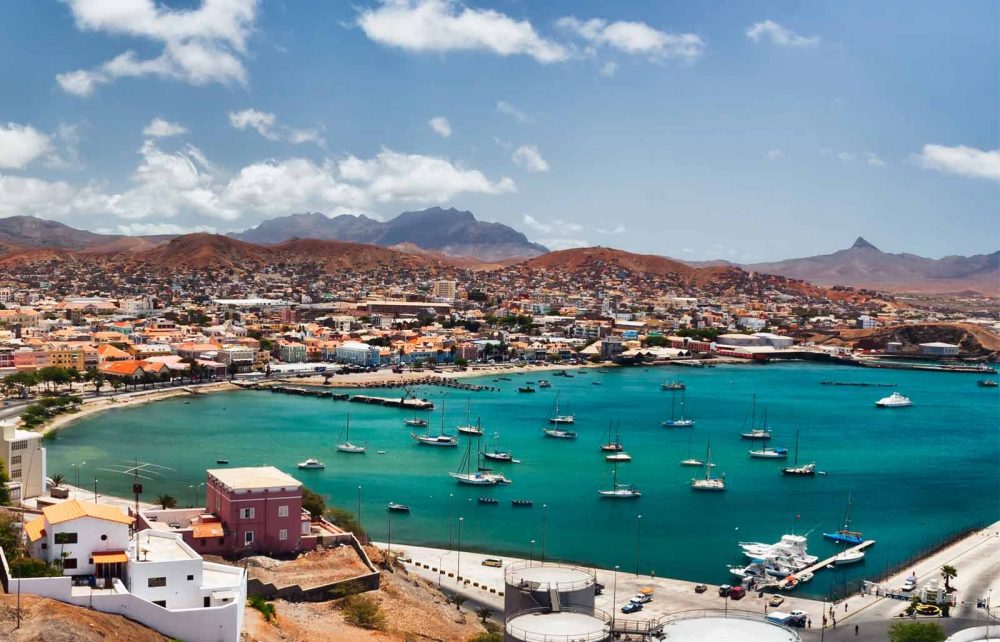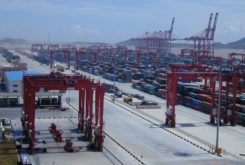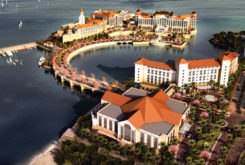Cabo Verde has a new minister of Maritime Economy, established on the island of São Vicente in 2018. With the Chinese-supported Special Economic Zone (SEZ) as the signature project for the sector, the more youthful Paulo Veiga, previously secretary of state of this portfolio, is expected to bring new momentum into the process and create a new economic growth engine.
Veiga took office in January, along with the new minister of Tourism and Transport, economist Carlos Santos. Until now, both ministries were within the portfolio of José Gonçalves, who unexpectedly resigned his post last November. Rui Figueiredo Soares was also appointed deputy minister of the prime minister for Regional Integration, replacing Júlio Herbert, who died in October 2019.
Gonçalves cited personal reasons for his resignation, describing a sense of “personal duty accomplished, mission accomplished” at his successors’ inauguration. According to close sources, however, his continuity has often been called into question over the past few years, due to complaints from the private sector regarding the Ministry’s slowness, particularly in approving investment projects.
In his defence, the former minister argued with the excessive concentration of competences and had been relieved of some areas.
Gonçalves took charge of the Economy and Employment, Tourism, Maritime and Air Transport folders in 2016, and was also responsible for Telecommunications, Maritime Economy, Digital Economy, Industry and Trade, Energy, Training and Employment Promotion programmes. Since 2018, he has had new secretaries of state, accumulating the positions of minister of Tourism and Transport and minister for Maritime Economy.
One of the most experienced Cape Verdean consultants, Gonçalves was largely seen in business circles as out of step with his duties. Routined as a consultant, he often delayed decisions by sending files to the consideration of the prime minister or the deputy prime minister, Olavo Correia, even when decision was within his mandate.
The former minister’s prudent decision process, in dissonance with the rest of the government, committed to encouraging private initiative and reducing the weight of the state, was also attributed to his advanced age.
The new ministers present a distinct profile, namely greater youth (around 40 years old) and executive experience in the public and private sector. Santos was until now resident administrator for Cabo Verde to Oásis Atlântico, one of the main tourist groups in the country.
Veiga belongs to the Veiga family, one of the most politically influential in the country, which includes Carlos Veiga, the former prime minister and favourite candidate in the governing MpD party for the upcoming presidential elections.
The profile of new members is considered a “reversal” by Correia e Silva from the first phase of his mandate, during which he relied mainly on more experienced staff.
Tourism has been the “engine” of the Cape Verdean economy, and the government also intends to boost the maritime economy. The anchor project in this area is the SEZ for Maritime Economy on São Vicente (ZEEEM), with support from China.
But the project has seen little progress, and Veiga will take charge of its revitalisation.
In July 2019, the government approved the proposal for a framework law that will allow the creation of the ZEEEM, along with other SEZs which will be implemented throughout the country, and will serve as a base law for various activities.
The framework law creates a legal regime with tax, customs and labour benefits, which give substance to the specifics of this law that creates special zones.
This month saw a presentation from the deputy coordinator for the project, Paulo Lopes da Silva, highlighting the profound changes ahead for the entire maritime sector. With an estimated timeline of 15 years and a global budget of US$2 billion for its materialisation, Lopes da Silva believes the ZEEEM will provide the island with a framework of competitive incentives to attract private and PPP investments to the maritime economy. The first phase of the three-phase implementation will occur between 2020 and 2025.
The government also approved the creation of the Campus do Mar in Mindelo, based on the restructuring of the National Institute for Fisheries Development and the Ocean Science Centre Mindelo, which will include the Universidade Técnica do Atlântico (UTA), with its headquarters in São Vicente. UTA officially began operations on 8 January, a “historic day” for the island, according to Secretary of State for Education Amadeu Cruz.
In his inauguration, Veiga announced that the government is working with an international consultant to launch, during the first semester, the international public tender for the concession of the country’s ports. In what was understood as a departure from Gonçalves, the new minister set the goal of accelerating project implementation.
The previous port concession tender, won by French company Bolloré, was annulled by the government. Portugal-based Grupo Sousa, which recently won the international tender for inter-island transport concessions, has also expressed interest in managing the country’s ports.
In addition to boosting confidence in the Tourism and Port sectors, the government reshuffle should have a positive impact on the executive’s decision-making, which is currently overly centralised in the prime minister and his deputy.




